
Overview and Facts
Crohn’s Disease is a chronic condition, which forms a part of a group of conditions, known as inflammatory bowel disease (IBD). In this disease, one experiences inflammation in the gut or gastrointestinal tract. Although Crohn’s disease can occur in the large intestine, any part of the stomach or esophagus, it most commonly affects the lower part of the small intestine. Hence, this condition can affect any area; from mouth to anus. While it may happen to people of any age, the most commonly affected people lie in the age range of 15-30. The other form of inflammatory bowel disease is ulcerative colitis, which causes similar symptoms and is sometimes mistaken for Crohn’s.
In 1932 when Burrill B. Crohn, a noted American gastroenterologist, was the first to describe this disease. The disease affects lacs of people in the U.S. and can be partly genetic in nature in some cases. It is more prevalent in certain ethnic groups like Eastern Europeans.
Crohn’s Disease can intervene with the normal bowel functioning in several ways:
- Swelling or formation of scar tissue in the bowel tissue resulting in blockage of passageway in the bowel.
- Development of ulcers in the deep lining of the bowel wall
- Malabsorption occurs, i.e., nutrients cannot be absorbed from digested foods.
Crohn’s disease starts gradually and worsens over time. There are several complications associated with this disease:
- Obstruction in the Intestine: Chron’s makes the wall of the intestines thick and gradually thickened areas narrow that block the intestine. This may block the movement of food or stool through the intestines.
- Ulcers: Inflammation may lead to formation of sores and ulcers in intestines, anus or other affected parts.
- Malnutrition: It develops when there is no proper absorption of the consumed nutrients, vitamins and minerals.
- Anal Fissures: There may be small fissures or tears in the anus that may lead to itching, pain and bleeding.
If one has Crohn’s disease, the chances of getting colon cancer also increases. Talk to a doctor and get screened periodically for colon cancer, which may include colonoscopy and biopsies.
There may periods of remission that is one may feel healthy as well as there will be times when symptoms are more intense.
Types and Symptoms of Crohn’s Disease
Types of Crohn’s Disease:
Basically, there are five types of Crohn’s disease:
- Ileocolitis: It is the most common type of Crohn’s disease. It affects the small intestine, known as ileum and the colon or large intestine. People with ileocolitis have diarrhea, pain in abdomen and experience weight loss.
- Ileitis: This affects the ileum. Symptoms are similar to those of ileocolitis. Also, inflammatory abscesses may form in the abdomen.
- Gastroduodenal Crohn’s Disease: This type of Crohn’s disease affects the stomach and duodenum – the starting point of the small intestine. People with this type of Crohn’s suffer from nausea, weight loss, loss of appetite and vomiting.
- Jejunoileitis: It affects the jejunum and causes inflammation. Symptoms include cramps, abdominal pain and diarrhea.
- Crohn’s Colitis: It affects the colon. Symptoms include joint pains, diarrhea, rectal bleeding and skin lesions.
Symptoms of Crohn’s Disease:
The symptoms may vary from mild to severe and differ from person to person. Some common Crohn’s disease symptoms are:
- Rectal Bleeding
- Frequently occurring diarrhea
- Fever
- Abdominal pain and cramps
- Weight loss
- Reduced appetite

Risk Factors of Crohn’s Disease
Several risk factors associated with this chronic condition are as follows:
- Age: Although the condition can develop at any age, Chron’s is more likely to set in during youth. Most people with Crohn’s get diagnosed before the age of 30.
- Ethnicity: Whites and Eastern Europeans including those who are of Jewish descent are more likely to have Crohn’s.
- Family History: The risk of having Crohn’s disease increases if there is a parent, sibling or child with the disease. Nearly 20% of the people with Crohn’s disease has a family member affected by it.
- Cigarette Smoking: It is a major risk factor of Crohn’s disease. If one smokes, then he/she must stop smoking as the incidence of Chron’s is higher in smokers.
- Non-Steroidal Anti-Inflammatory Drugs (NSAIDs): NSAIDs like ibuprofen and naproxen sodium have the potential to worsen Crohn’s disease.
- Place of Living: If one resides in areas that are industrialized, then the person is at a higher risk of developing Crohn’s disease.
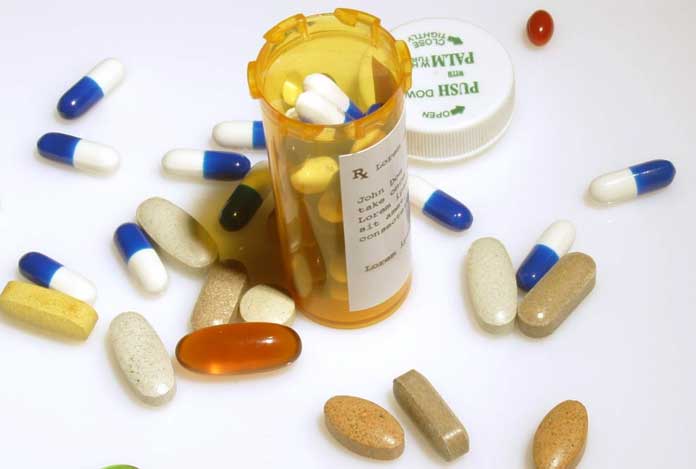
Do I have Crohn’s Disease?
There are two main forms of IBD. One is Crohn’s disease, while the other is ulcerative colitis. Both are chronic diseases that cause inflammation in the gut. The symptoms are also quite similar, i.e., abdominal pain and diarrhea. But, these two should not be confused with each other. Both the conditions have some differences that must be noted.
As already mentioned, Crohn’s can occur in any part of the gastrointestinal tract; from the mouth to the anus. Whereas, ulcerative colitis usually confined to large intestine and rectum. In Crohn’s disease inflammation occurs as patches of inflamed areas. On the other hand, in ulcerative colitis, there is a stretch of inflammation often seen from rectum to colon.
Moreover, Crohn’s extends through all the layers of gastrointestinal wall, whereas ulcerative colitis extends to the innermost layer of the lining of the colon. Around 75% cases of Crohn’s cases require surgery in which a part of GI tract is removed. However, the numbers are not so surprising for Ulcerative colitis as only around 33% of the cases require surgery in which the colon is removed.
Causes and Prevention of Crohn’s Disease
Causes of Crohn’s Disease:
Some common causes of Crohn’s diseases as discussed below:
- Autoimmune Reaction: One of the possible causes of Crohn’s disease may an autoimmune reaction – when the immune system attacks healthy cells of the body.
- Genes: This disease runs in families. If one’s parent or sibling has Crohn’s one is more susceptible to have the disease.
- Other Factors: Smoking, NSAIDs and high-fat diet may also lead to the development of Crohn’s disease.
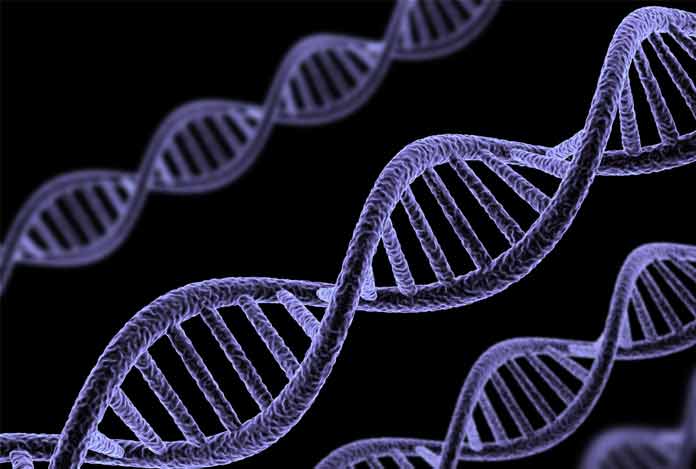
Prevention of Crohn’s Disease:
Some healthy lifestyle strategies can help prevent Crohn’s disease:
- Eat a Balanced Diet: Reducing the intake of foods, like those high in trans fats and sugar, can help lower the chances of getting Crohn’s. One may benefit by consuming diet rich in vegetables, fruits and omega-3 fatty acids.
- Avoid Smoking: Smokers having Crohn’s have more relapses and require more and repeated surgeries as they suffer from intense complications. The health of digestive tract gradually improves as one stops smoking.
- Stress Management: Chronic stress results in inflammation, which can worsen Crohn’s disease. Thus, effective management techniques like exercises, breathing and meditation should be employed to prevent and minimize the risk of getting this disease.
- Drink Enough Water: Drinking water is good for the intestines. This will help in the prevention of the development of Crohn’s disease.
- Up the Intake of Vitamin D: Vitamin D is as effective as animal-based omega-3 fatty acids help fight against IBD. Vitamin D can be obtained from sun exposure or one can be taken as a supplement.

Diagnosis and Tests of Crohn’s Disease
For the diagnosis of Crohn’s disease, the doctor generally begins by gathering information about history of the patient’s health and conducting a physical exam. Lab tests may be required to look out for problems associated with this condition. These tests include looking for signs of inflammation, infection, and low levels of important minerals. Lab tests are done to analyze blood protein levels, body mineral levels, red blood cells (RBC) and white blood cells (WBC) count.
Crohn’s disease may be found anywhere in the gastrointestinal tract from mouth to anus. Doctors may use X-rays, and other imaging scans to identify the intensity and location of the disease. The following tests are employed to confirm the condition:
- Barium X-rays and other X-rays
- Computed Tomography (CT) Scans
- Colonoscopy and biopsies
- Video capsule endoscopy
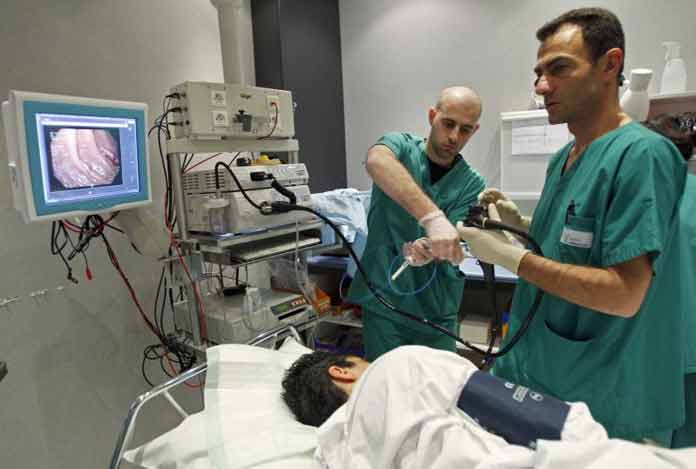
Treatment and Care of Crohn’s Disease
Treatment of Crohn’s Disease:
There is no sure-shot cure for Crohn’s disease. The aim of the treatment is to reduce inflammation that activates the signs. The first line of treatment of this disease includes giving drugs that include:
- Corticosteroids: These may be used for the improvement of short-term symptoms and to prevent remission.
- Oral 5-Aminosalicylates: These drugs include sulfasalazine containing sulfa and mesalamine. They are used to manage minor symptoms and inflammation.
- Immunosuppressants: Azathioprine and mercaptopurine are used in the treatment of this disease. However, these are known to have several side effects.
- Antibiotics: Frequently prescribed antibiotics include ciprofloxacin and metronidazole. These heal fistulas and abscesses in people having Crohn’s.
- Nutrition Therapy: Doctors may recommend giving diet via a feeding tube or injecting into the vein for the treatment of Crohn’s disease. Nutrition therapy may be used for short-term and is combined with medications like immunosuppressive drugs. Enteral and parenteral therapy is used in cases, where medications fail to control the symptoms or if surgery has to be performed.
- Surgery: If diet, lifestyle changes, medicines or other forms of treatments fail to deliver the desired results, then surgery may be recommended. Nearly 50% of those with Crohn’s require at least one surgery. During surgery a damaged portion of the digestive tract is removed. However, the benefits of surgery are not permanent. The disease may even reoccur after the procedure.

Caring for People with Crohn’s Disease:
It is not easy to know what to do when someone you care for has Chron’s as this condition makes the affected person frequently run to the bathroom. People with Crohn’s have a frequent need for doctors, medicines and procedures.
As a person, who is there to support the Crohn’s patient, you may help them remain organized. Make sure that the patient takes medicines regularly and on time to avoid Crohn’s flare-ups. Make a food diary for them to know which foods trigger flare-ups. Support them after a surgery if it is necessary to be performed. Help the patient when they need to apply prescription ointments to their anus and buttocks. Also, offer emotional support in case you find them sad and depressed because of their condition.

OTC and Self-Management Methods for Crohn’s Disease
(Over-the-counter) OTC Medications for Crohn’s Disease:
Depending on the symptoms of Crohn’s disease, doctors may recommend OTC medications like:
- Anti-diarrheal drugs
- Nutritional supplements
- Pain relievers
These OTC medications should only be taken as supplements to the prescription medicines.
One may also go for alternative treatments or traditional therapies. But, one must have a dialogue with his/her healthcare provider before taking that leap.
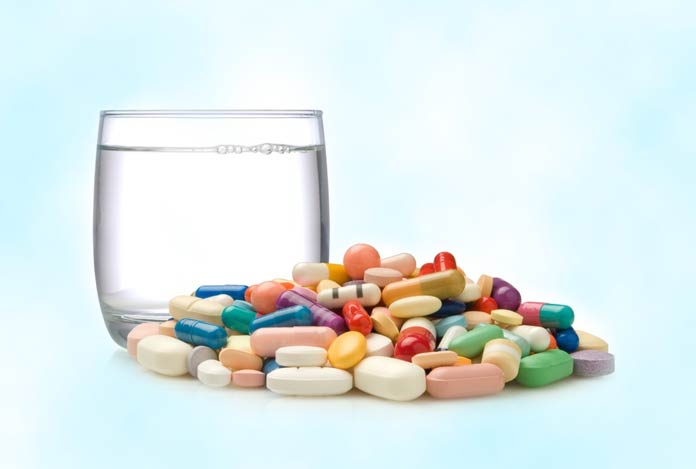
Self-Management Methods for Crohn’s Disease:
One can help oneself by:
- Quitting Smoking as smoking worsens the condition of Crohn’s disease
- Eating a healthy diet
- Not using antibiotics, unless prescribed by a doctor
- Exercising regularly
- Getting support and counseling to deal with the emotional aspects
- Nourishing Yourself: You may add vitamin and mineral supplements to your diet. You can even take supplements to nourish yourself. You may need to take vitamins like B12 or D and certain minerals like calcium or iron

Natural Ways to Cure Crohn’s Disease
Some natural remedies to manage the symptoms of Crohn’s disease are as follows:
- Probiotics: Gastrointestinal tract consists of good bacteria that help in digestion and fight against bad bacteria. Probiotics are living organisms that are meant for consumption. These are naturally present in certain foods or one can take in the form of supplements. Yogurt is a common source of probiotics. However, Crohn’s patients may be sensitive to dairy products.
- Prebiotics: These are usually fiber compounds that pass through the upper section of the gastrointestinal (GI) tract without being digested and boosts the growth of good bacteria residing in the large intestine. Prebiotics is necessary for the health of digestive system.
- Fish Oil: Omega-3 fatty acids found in fish oil have anti-inflammatory properties and thus, help to reduce Crohn’s symptoms. Research suggests that patients, who take fish oil supplements are twice less likely to experience symptom remission as compared to the ones, who take a placebo.
- Botanical and Herbal Treatments: One can use herbal treatments like aloe vera juice, peppermint and chamomile.
- Acupuncture: It activates brain to release feel-good chemicals that block the perception of pain. EFT can also be used which makes use of finger tapping and saying affirmations.
- Yoga: A 2015 study indicated the effectiveness of yoga in dealing with stress in patients with Crohn’s disease. Many participants also reported having relief in their symptoms with improved quality of life.
- Zinc: It is a powerful antioxidant and can help repair intestinal cells in people suffering from Crohn’s disease.
- Indian Frankincense (Boswellia): It is an Ayurvedic herb that has anti-inflammatory properties. These do not have any major side effect as well.
- Lifestyle and Dietary Changes: Sedentary lifestyle, cigarette smoking, eating processed foods and saturated fats and lack of exposure to sunlight can all act as triggers for Crohn’s. Thus, bringing about requisite changes may help prevent and manage the condition.
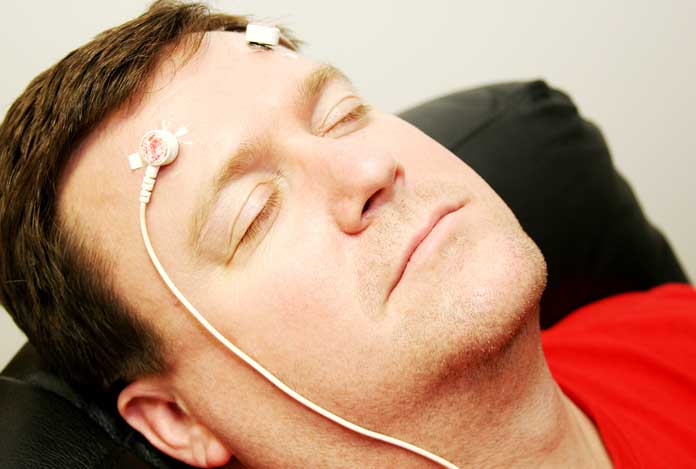
Health Tip by Expert
When people with Crohn’s disease start feeling better, they should not liberalize and overindulge in diet too soon as it may cause the symptoms to return. Also, the most important thing to ease the symptoms and prevent flares is to take medicines as directed.




